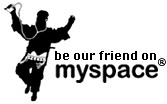10th of Teves
Tevet 10: Sunday, Dec. 31One of my Rabbis here in Jerusalem recounted a very interesting story recently. I don't remember it word for word, but this is the gist: A Chassid recently (read: last week) walked into a Chabad shul and said, "I have proof that Chabad is wrong!" (Obviously this was not a Luvavitcher chassid). He said, "In the Gemarah, there is an argument about whether the 5th of Teves or the 10th of Teves should be the fast day. Since the 5th of Teves also has the attribute of a day of mourning, for Chabad to celebrate on that day proves that they are wrong!"
Fast day, Prayer schedule, no classes
This Sunday, Tevet 10, is observed as a day of fasting, mourning and repentance, in remembrance of the siege of Jerusalem.
It was on this date in the year 3336 from Creation (425 BCE), that the armies of the Babylonian emperor Nebuchadnezzar laid siege to Jerusalem. Thirty months later -- on Tammuz 9, 3338 -- the city walls were breached, and on Av 9th of that year, the Holy Temple was destroyed. The Jewish people were exiled to Babylonia for 70 years.
Today, this is one of the five major public fasts we observe. We refrain from food and drink from daybreak to nightfall, and add the Selichot and other special supplements to our prayers. (More recently, Tevet 10 was chosen to also serve as a "general kaddish day" for the victims of the Holocaust, many of whose day of martyrdom is unknown.)
As such:
1) The Sunday morning Minyan will be at Chabad at its regular time of 9:00 AM, only this week the service will include the supplemental prayers and the Torah reading.
2) The regular Parsha study will be held after services at Chabad without the breakfast. It will begin a bit later than usual, as the services are a bit longer.
3) We will have Mincha service at 4:30 PM followed by Maariv service and light break-fast refreshments.
4) The fast (which begins in the early morning) ends at 5:40.
May this be the last fast we observe in exile and may we merit the coming of Moshiach very, very speedily, Amen.
Chabad by the Sea
--------------------------------------------------------------------------------
email: info@chabadbythesea.com
phone: 831-454-0101
web: ChabadbytheSea.com
He was referring to the holiday celebrated in the Chabad community known as Hei Teves, the 5th of Teves, a day of great rejoicing in celebration of a victory of the Chabad movement and its Rebbe in the 1980's. The Rabbi turned to this Chassid, and said, "Ah, but you see, it is known that in the Era of Moshiach, fast days will become days of great celebration! This is a sign that we're surely already in the beginning of the Era of Moshiach!"
May tomorrow be a day of great rejoicing and celebration.





 One of the questions which this officer presented to the Alte Rebbe was regarding the explanation of the line in Torah, "G-d called out to Adam and He said to him, 'Where are you?'" The officer asked, "Didn't G-d know where Adam was? For what purpose did He ask, "Where are you?"?
One of the questions which this officer presented to the Alte Rebbe was regarding the explanation of the line in Torah, "G-d called out to Adam and He said to him, 'Where are you?'" The officer asked, "Didn't G-d know where Adam was? For what purpose did He ask, "Where are you?"?

